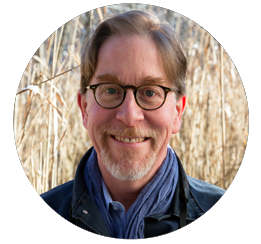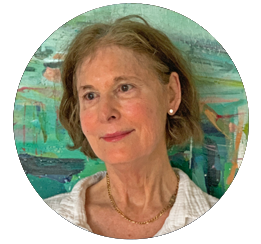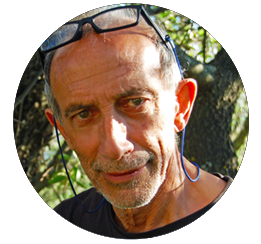Tuition: $105 for the three-part series
4 CE Hours: $50 (in addition to tuition fee)
Follow this link to view which Boards of Approval recognize
Continuing Education hours offered for this program.
Continuing Education hours offered for this program.
Dates & Times:
The lectures take place live via Zoom over three Saturdays.
March 2nd, 23rd and April 6th 2024 from 12 noon to 1:30pm US Eastern Time.
The lectures take place live via Zoom over three Saturdays.
March 2nd, 23rd and April 6th 2024 from 12 noon to 1:30pm US Eastern Time.
This lecture series forms part of The Assisi Institute’s Public Lecture Program.
If you are not able to join the live sessions, please note that the lectures will be recorded and all registered participants will receive the recordings afterwards.
Please note: All currently enrolled Archetypal Pattern Analyst (APA) students receive a 20% discount on this series. Email [email protected] to receive your discount code.
If you are not able to join the live sessions, please note that the lectures will be recorded and all registered participants will receive the recordings afterwards.
Please note: All currently enrolled Archetypal Pattern Analyst (APA) students receive a 20% discount on this series. Email [email protected] to receive your discount code.
"I felt that I too, was part of nature… in contemplating the ways of nature around me, and in becoming aware of the ways of nature within me, perhaps … I could discover a sense of oneness in existence. It soon became apparent that the natural forces I was observing and the scientific data I was studying shared a common characteristic - a tendency toward patterning and order."
- Elizabeth Osterman, Jungian Analyst and Scientist -
- Elizabeth Osterman, Jungian Analyst and Scientist -
Program Description
The ancients understood that we live in a unified, animated world, where there is no separation between matter and Psyche, and that each is a vital expression of soul, filled with meaning and deserving of reverence. Today, unfortunately, we rarely look at nature and appreciate how each and every aspect of life, from birth, to death and all the mysterious events occurring within our life speak to the natural order and rhythms of life inherent within the Psyche. The indigenous people, the early mystics and alchemists understood this to be the true nature of reality.
As history is replete with stories about this confluence of matter and Psyche, Jung and the early Jungians followed in the footsteps of those pioneers and studied their clients' dreams, fantasies, studied ethology, biology, and alchemical texts to learn about the expressions of Psyche in matter. In time, they understood this inexorable relationship and dance between matter and spirit and soul.
As part of the Assisi Institute’s continuing investigations into the expressions and manifestations of Psyche in the world, this seminar series is presented by a faculty of internationally renowned scientists and Jungians.
They include: Richard Prum, an ornithologist who will be discussing his new book “Performance all the Way Down”; Efrat Ginot (from Israel), a neuropsychologist, will discuss negative self-narratives and emotional regulation; and Shantena Sabbadini (Italy), a physicist and longtime collaborator and faculty member at the infamous Eranos Conferences, will discuss the phenomenon of life through quantum physics.
About the Presentations
Performance All the Way Down: Genes, Development, and Sexual Difference
Presented by Dr. Richard O. Prum
Saturday March 2nd, 2024 from 12pm to 1.30pm US Eastern Time
The idea that gender is a performance has spread from college classrooms to popular culture. This transformative concept has sparked reappraisals of social expectations as well as debate over not just gender, but sex: what it is, what it means, and how we know it. In "Performance All the Way Down," Yale Ornithologist Richard O. Prum brings feminist thought into conversation with biology, arguing that the sexual binary is not essential to human genes, chromosomes, or embryos. Our genomes are not blueprints, algorithms, or recipes for the physical representation of our individual sexual essences or fates. Rather, gene expression is a material action in the world, a performance through which the individual regulates and achieves its own becoming.
Emotional Dysregulation and Negative Self-Narratives: A Neuropsychological Model
Presented by Dr. Efrat Ginot
Saturday March 23rd, 2024 from 12pm to 1.30pm US Eastern Time
One of the most prevalent qualities that characterize humans’ emotions are the recurrent narratives we have about ourselves, about our various traits, self-worth, and especially our perceived strengths and weaknesses. In many ways, these self-narratives underpin our ongoing, conscious sense of self. Essentially, self-narratives contain within them an amalgam of conscious and unconscious experiences and memory traces. What makes them central signifiers of our self-perception and identity are their repetitive nature and their roots in early interpersonal interactions. Self-narratives can be seen as part of neuropsychological schemas that originate from the child’s efforts to give meaning to their experiences. Of particular interest to clinicians are narratives that are embedded within dysregulated emotional states, especially anxious ones. Anxious states, like those suffused with shame, almost always also contain recurrent narratives. This presentation involves an integration of clinical experiences with neuropsychological findings.
Quantum Physics and Life
Presented by Dr. Shantena Sabbadini
Saturday April 6th, 2024 from 12pm to 1.30pm US Eastern Time
In 1943 in Dublin Erwin Schrödinger, one of the founders of quantum physics, gave a famous series of lectures titled "What is Life?” His motivation stemmed from the fact that there is no room for life in classical physics: a living organism is just a complex machine following strict deterministic laws. On the other hand quantum physics, allowing for unpredictable events, seems to open a door to a non-deterministic understanding of life phenomena, which is clearly aligned with Jung's findings about the Individuation process. Does such an understanding have anything to do with our sense of being free agents, of possessing free will? In this talk we’ll re-open Schrödinger’s enquiry in the light of some recent scientific developments and especially those arising from the field of Quantum Physics.
The ancients understood that we live in a unified, animated world, where there is no separation between matter and Psyche, and that each is a vital expression of soul, filled with meaning and deserving of reverence. Today, unfortunately, we rarely look at nature and appreciate how each and every aspect of life, from birth, to death and all the mysterious events occurring within our life speak to the natural order and rhythms of life inherent within the Psyche. The indigenous people, the early mystics and alchemists understood this to be the true nature of reality.
As history is replete with stories about this confluence of matter and Psyche, Jung and the early Jungians followed in the footsteps of those pioneers and studied their clients' dreams, fantasies, studied ethology, biology, and alchemical texts to learn about the expressions of Psyche in matter. In time, they understood this inexorable relationship and dance between matter and spirit and soul.
As part of the Assisi Institute’s continuing investigations into the expressions and manifestations of Psyche in the world, this seminar series is presented by a faculty of internationally renowned scientists and Jungians.
They include: Richard Prum, an ornithologist who will be discussing his new book “Performance all the Way Down”; Efrat Ginot (from Israel), a neuropsychologist, will discuss negative self-narratives and emotional regulation; and Shantena Sabbadini (Italy), a physicist and longtime collaborator and faculty member at the infamous Eranos Conferences, will discuss the phenomenon of life through quantum physics.
About the Presentations
Performance All the Way Down: Genes, Development, and Sexual Difference
Presented by Dr. Richard O. Prum
Saturday March 2nd, 2024 from 12pm to 1.30pm US Eastern Time
The idea that gender is a performance has spread from college classrooms to popular culture. This transformative concept has sparked reappraisals of social expectations as well as debate over not just gender, but sex: what it is, what it means, and how we know it. In "Performance All the Way Down," Yale Ornithologist Richard O. Prum brings feminist thought into conversation with biology, arguing that the sexual binary is not essential to human genes, chromosomes, or embryos. Our genomes are not blueprints, algorithms, or recipes for the physical representation of our individual sexual essences or fates. Rather, gene expression is a material action in the world, a performance through which the individual regulates and achieves its own becoming.
Emotional Dysregulation and Negative Self-Narratives: A Neuropsychological Model
Presented by Dr. Efrat Ginot
Saturday March 23rd, 2024 from 12pm to 1.30pm US Eastern Time
One of the most prevalent qualities that characterize humans’ emotions are the recurrent narratives we have about ourselves, about our various traits, self-worth, and especially our perceived strengths and weaknesses. In many ways, these self-narratives underpin our ongoing, conscious sense of self. Essentially, self-narratives contain within them an amalgam of conscious and unconscious experiences and memory traces. What makes them central signifiers of our self-perception and identity are their repetitive nature and their roots in early interpersonal interactions. Self-narratives can be seen as part of neuropsychological schemas that originate from the child’s efforts to give meaning to their experiences. Of particular interest to clinicians are narratives that are embedded within dysregulated emotional states, especially anxious ones. Anxious states, like those suffused with shame, almost always also contain recurrent narratives. This presentation involves an integration of clinical experiences with neuropsychological findings.
Quantum Physics and Life
Presented by Dr. Shantena Sabbadini
Saturday April 6th, 2024 from 12pm to 1.30pm US Eastern Time
In 1943 in Dublin Erwin Schrödinger, one of the founders of quantum physics, gave a famous series of lectures titled "What is Life?” His motivation stemmed from the fact that there is no room for life in classical physics: a living organism is just a complex machine following strict deterministic laws. On the other hand quantum physics, allowing for unpredictable events, seems to open a door to a non-deterministic understanding of life phenomena, which is clearly aligned with Jung's findings about the Individuation process. Does such an understanding have anything to do with our sense of being free agents, of possessing free will? In this talk we’ll re-open Schrödinger’s enquiry in the light of some recent scientific developments and especially those arising from the field of Quantum Physics.
About the Presenters

Richard Prum, PhD. is an evolutionary ornithologist with broad interests in avian biology. He has done research on diverse topics, including avian phylogenetics, behavioral evolution, feather evolution, and sexual selection. He has conducted field work on all continents, and studied fossil theropods in China. Prum is the William Robertson Coe Professor of Ornithology in the Department of Ecology and Evolutionary Biology at Yale University. He also serves as the Curator of Ornithology in the Yale Peabody Museum of Natural History. From 2012 to 2017, Prum was the inaugural Director of Franke Program in Science and the Humanities - an initiative at Yale that aims to foster communication, mutual understanding, collaborative research and teaching among diverse scientific and humanistic disciplines. Prum earned his bachelors at Harvard, and his doctorate at the University of Michigan, and is the recipient of the prestigious; Fulbright, Guggenheim, and MacArthur Fellowships. Prum's 2017 book, “The Evolution of Beauty”, was named one of the New York Times' Top Ten Books of 2017, and was a finalist for the 2018 Pulitzer Prize in General Non-Fiction. The book has been translated into ten languages.

Efrat Ginot, PhD. is an artist and Psychoanalyst, practicing for over 35 years in New York City, where she also teaches and supervises clinicians. She is a graduate of the New York University Postdoctoral Program for Psychotherapy and Psychoanalysis, and has authored many papers focusing on the therapeutic process. In particular, her large body of work integrates neuropsychology and psychoanalytic thinking, advancing our understanding of psychodynamics and psychopathology. In 2002 she received the Gradiva Award for an article re-examining the concept of the Holding Environment, and her book “The Neuropsychology of the Unconscious: Integrating Brain and Mind in Psychotherapy" presents a novel neuropsychological model for understanding unconscious processes, and demonstrates how a contemporary view of the unconscious is essential for clinical work. This book also received the Gradiva Award for Best Book in 2016. Over the years she participated in many panels where she presented her ideas, and has given lectures and workshops in the U.S., Australia, Europe and Israel. Her current book, "Our Anxious Selves: Neuropsychological Processes and Their Enduring Influence on Who We Are", focuses on the prominent role that fear and anxiety have on our identity.

Shantena Augusto Sabbadini is a physicist, philosopher and a scholar of Chinese classics. As a physicist he worked at the University of Milan on the foundations of quantum physics and at the University of California on the first identification of a black hole. In the 1990's he was scientific consultant for the Eranos Foundation, an East-West research institute founded in 1933 under the supervision of C.G. Jung. In that context he produced innovative translations of the I Ching and of the Taoist classics. He directs the Pari Center for New Learning, an international institute located in the small medieval village of Pari, Tuscany. His latest books are “Pilgrimages to Emptiness” (Pari Publishing, 2017), “Buchi neri” (Lindau, Turin, 2018) and “Vacuum: The Ultimate Ground of Being”, with Maurizio Consoli (World Scientific, Singapore, expected to come out in 2020).
Cancellations & Refunds
A full refund, minus a $50 administrative fee, is given if cancellation is made prior to one week (by February 23, 2024) before the beginning of the program. A 50% refund is given if cancellation is made less than one week before the series begins.
A full refund, minus a $50 administrative fee, is given if cancellation is made prior to one week (by February 23, 2024) before the beginning of the program. A 50% refund is given if cancellation is made less than one week before the series begins.
